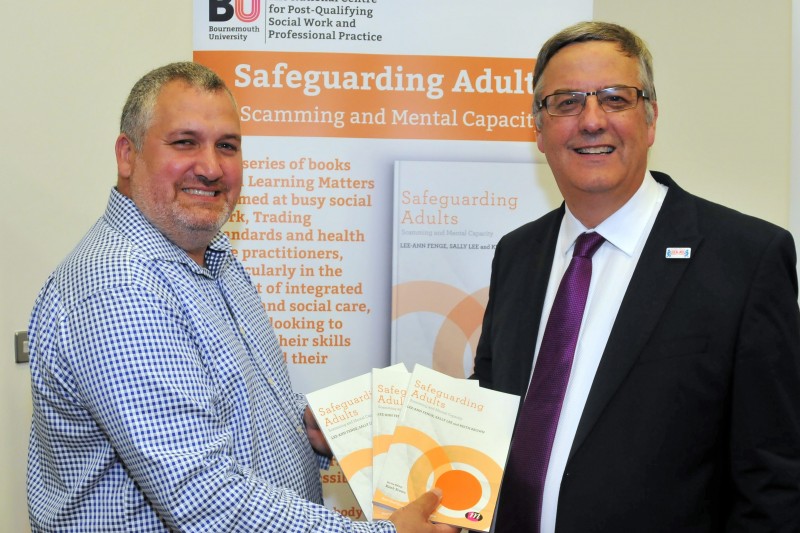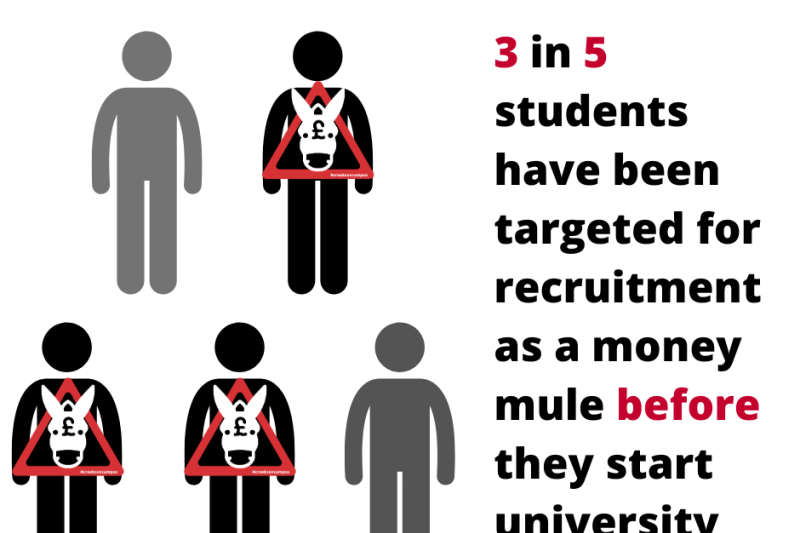
Bournemouth University (BU) was awarded an institutional hero award at CTSI conference for its work protecting vulnerable people from scamming. BU’s Professor Keith Brown, who was collecting the award, has also launched a new textbook on scamming at The Chartered Trading Standards Institute (CTSI) conference in Harrogate. At the conference, more than 500 attendees from the consumer protection community engaged in a range of talks, workshops and sessions from 27-29 June.
The conference began with an introductory talk by guest speaker Professor Keith Brown, Director of the Centre for Post Qualifying Social Work (NCPQSW) at BU, who launched his team’s book about financial scamming, “Safeguarding Adults, Scamming and Mental Capacity”, co-authored by BU’s Sally Lee and Dr Lee-Ann Fenge at the event. Professor Brown spoke about the ways in which his centre’s research had been developed by working with the police and the Chartered Trading Standards Institute.
BU was awarded with the CTSI’s institutional hero award, given to candidates who have made outstanding contributions to the field of consumer protection, with particular mention given to Professor Brown and the NCPQSW.
Leon Livermore, CEO of the CTSI said: “By making this award we seek to highlight the contribution that the university has made to bring the issues surrounding scams to the attention of policy makers. As organisations we are often comfortable talking about our own issues, especially at a time when any government service linked to local government is experiencing once-in-a-generation challenges.
“However, the university has highlighted a commitment to reaching out to organisations across the consumer protection landscape to better understand the shared challenges that scams cause to our vulnerable population – especially as elderly, isolated and vulnerable individuals are a growing part of our communities.”
He added: “The University has contributed its research expertise – delivering a detailed snapshot of the current thinking on protecting vulnerable adults from scamming and making recommendations to local and central government on how preventative measures can help to improve the outcomes for consumers. It has also committed to working in the future on more detailed work to understand challenges caused by scammers to vulnerable individuals.”
Of the research, Professor Brown said: “What we are finding is really quite fascinating but also quite scary. Scamming is different for different people and comes about in lots of different ways. Some people realise they are being scammed, some don’t, and some people are frankly too embarrassed to even admit it to themselves.
“Scamming can be “door-step” crime, these are the sort of people who come to your house and want to paint your shed or fence for £1,000, and then repair your roof for £10,000. We’ve also got mail scamming, false lotteries, telephone scamming, and internet scamming, which is on the rise, and is not as prevalent in the elderly.”
The NCPQSW was founded by Professor Brown in 2000, and is based at BU’s Lansdowne campus. The centre works in partnership with over one third of local authorities in England, and has seen more than 10,000 students study in social work fields at BU.
To read more about the work of BU and the NCPQSW in combatting financial scamming, please visit: http://www.ncpqsw.com/



